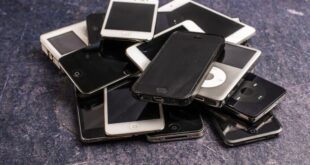Social media sharing can expose more people to your private life than you realize.
Credit : Shutterstock, JOURNEYSTUDIO7
We all love a bit of social media – sharing that holiday snap, a check-in at your favourite pub, or posting the big news when you move house. But here’s a question: have you ever thought about just how much you’re telling the world… and who might be listening?
In the digital age, “oversharing” may sound like something that your mother would nag you about. But it is a serious problem. Most of us are more exposed than we realize online.
Oversharing: Why are we so prone to it?
What does “oversharing”, in reality, mean? It’s that little habit we’ve all picked up – revealing personal details online that you wouldn’t dream of telling a stranger in the street. Sometimes it is harmless, but other times not.
Your pet’s name, or your phone number (hello security questions!) are all good examples.Your new car or the dates of your holiday are just a few examples. Each post helps to build a picture of you. Not just your friends and followers are keeping an eye on you. Fraudsters and scammers are also paying attention.
Ask yourself – would you give a random person your home address or tell them you’re leaving your house empty for a week? Probability is that you wouldn’t. If you put it on the internet, suddenly it’s public knowledge.
It’s not just strangers you need to worry about…
The people you don’t really want to know about your personal data are those who are most likely to be interested.
- Identity thieves are attracted to posts that include your birthday, your pet’s name or even your driving license as a way of celebrating your passing.
- Burglars pay attention to holiday posts – especially those “countdown to the beach!” stories.
- Online scammers look through your public posts and search for information that they can use to impersonate yourself or crack passwords.
You use apps and websites every day. Have you ever noticed how fast ads start appearing for something that you just posted on Facebook? That’s no accident. Many apps gather your data and build a user profile. They then sell that information to those who are willing to pay.
Is it possible that oversharing can cause real problems? Absolutely.
The trouble is, oversharing is so easy – and it rarely feels dangerous at the time. You may want to share your excitement about a holiday or show off your home.
Think about it. The holiday countdown basically tells people when your home is empty. The school badge or name could be visible in the photo of your child on his first day of school. Sharing a route you take while running could reveal your home address.
You’re leaving your front door wide-open digitally. It only takes one person with bad intentions to ruin the entire thing.
Simple ways to keep safe
Don’t panic – you don’t need to give up social media. It’s important to be cautious. Here are some digital safety tips from experts (and common sense).
- Do not post your current location on social media, particularly if you are alone and away from home.
- Be careful when sharing sensitive information, such as personal routines or your address.
- You can still enjoy your holiday photos after you return safely.
- Check what your apps are allowed to see about you – some permissions are simply unnecessary.
- If you slip up, don’t stress – just delete the post and tighten your privacy settings.
You should never share anything on the internet that you would not shout out in a busy pub. You can send the update to close family members or friends.
We’re all guilty, let’s be honest. Sometimes we give away too much. In a world in which everything can be copied and screenshotted in seconds, protecting privacy is more important than ever.
So, next time your finger’s hovering over the ‘share’ button, ask yourself: who It is a good idea to use Does anyone need to see this information? It might be worth it to keep some mystery.
Stay smart, stay safe – and remember, it’s cool to keep a few things to yourself.
 Costa News Spain Breaking News | English News in Spain.
Costa News Spain Breaking News | English News in Spain.




